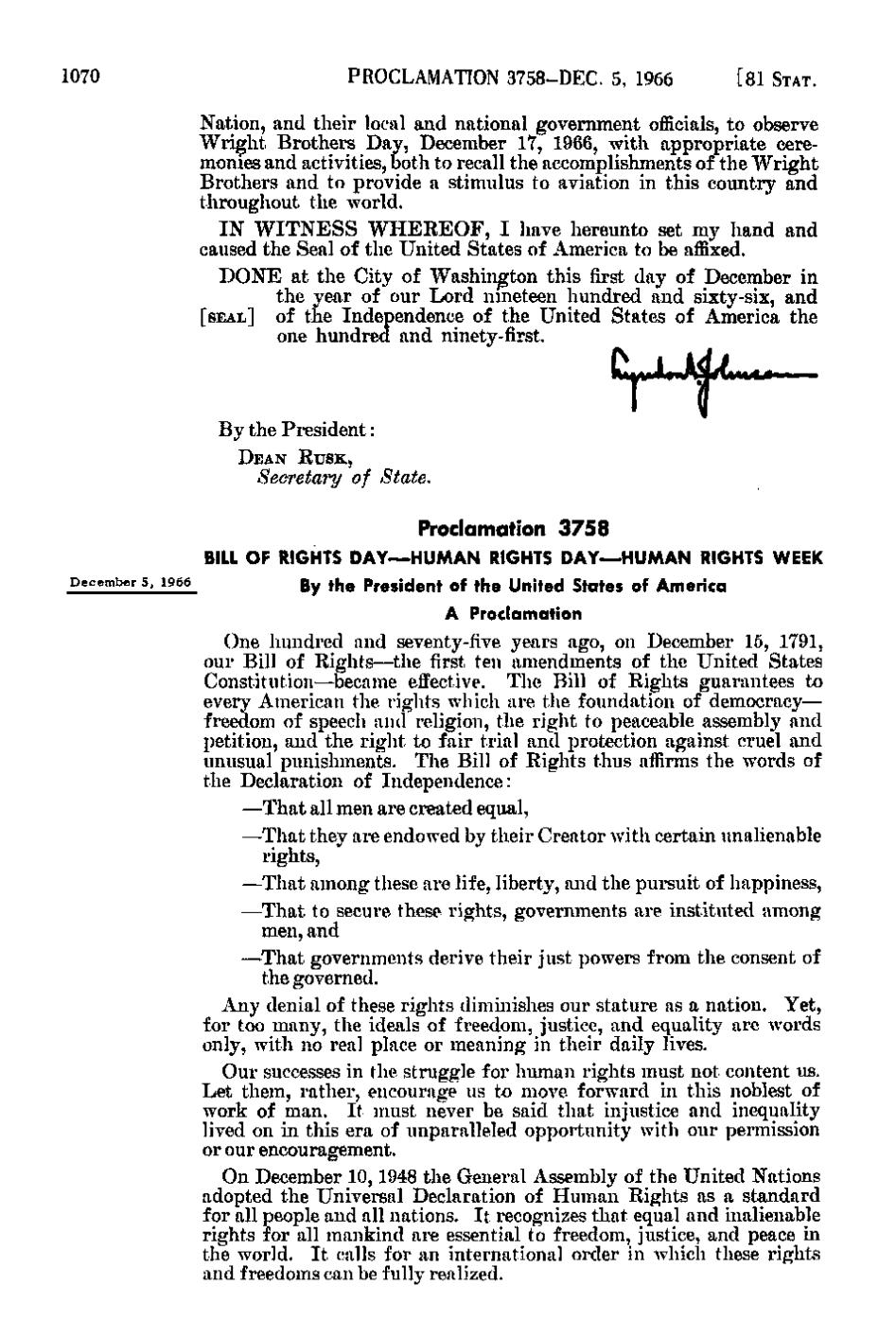1070
PROCLAMATION 3758-DEC. 5, 1966
[81 STAT.
Nation, and their local and national government officials, to observe Wright Brothers Day, December 17, 1966, with appropriate ceremonies and activities, both to recall the accomplishments of the Wright Brothers and to provide a stimulus to aviation in this country and throughout the world. I N W I T N E S S WHEREOF, I have hereunto set my hand and caused the Seal of the United States of America to be affixed. DONE at the City of Washington this first day of December in the year of our Lord nineteen hundred and sixty-six, and [SEAL] of the Independence of the United States of America the one hundred and ninety-first.
By the President: DEAN R U S K,
Secretary
of
State. Proclamation 3758
BILL OF RIGHTS DAY—HUMAN RIGHTS DAY—HUMAN RIGHTS WEEK December 5, 1966 gy the President of the United States of America A Proclamation
One hundred and seventy-five years ago, on December 15, 1791, our Bill of Rights—the first ten amendments of the United States Constitution—became effective. The Bill of Rights guarantees to every American the rights which are the foundation of democracy— freedom of speech and religion, the right to peaceable assembly and petition, and the right to fair trial and protection against cruel and unusual punishments. The Bill of Rights thus affirms the words of the Declaration of Independence: —That all men are created equal, —That they are endowed by their Creator with certain unalienable rights, —That among these are life, liberty, and the pursuit of happiness, —That to secure these rights, governments are instituted among men, and —That governments derive their just powers from the consent of the governed. Any denial of these rights diminishes our stature as a nation. Yet, for too many, the ideals of freedom, justice, and equality are words only, with no real place or meaning in their daily lives. Our successes in the struggle for human rights must not content us. Let them, rather, encourage us to move forward in this noblest of work of man. I t must never be said that injustice and inequality lived on in this era of unparalleled opportunity with our permission or our encouragement. On December 10, 1948 the General Assembly of the United Nations adopted the Universal Declaration of Human Rights as a standard for all people and all nations. I t recognizes that equal and inalienable rights for all mankind are essential to freedom, justice, and peace in the world. I t calls for an international order in which these rights and freedoms can be fully realized.
�
